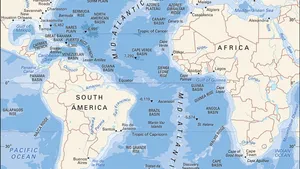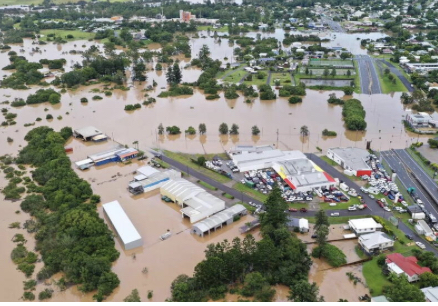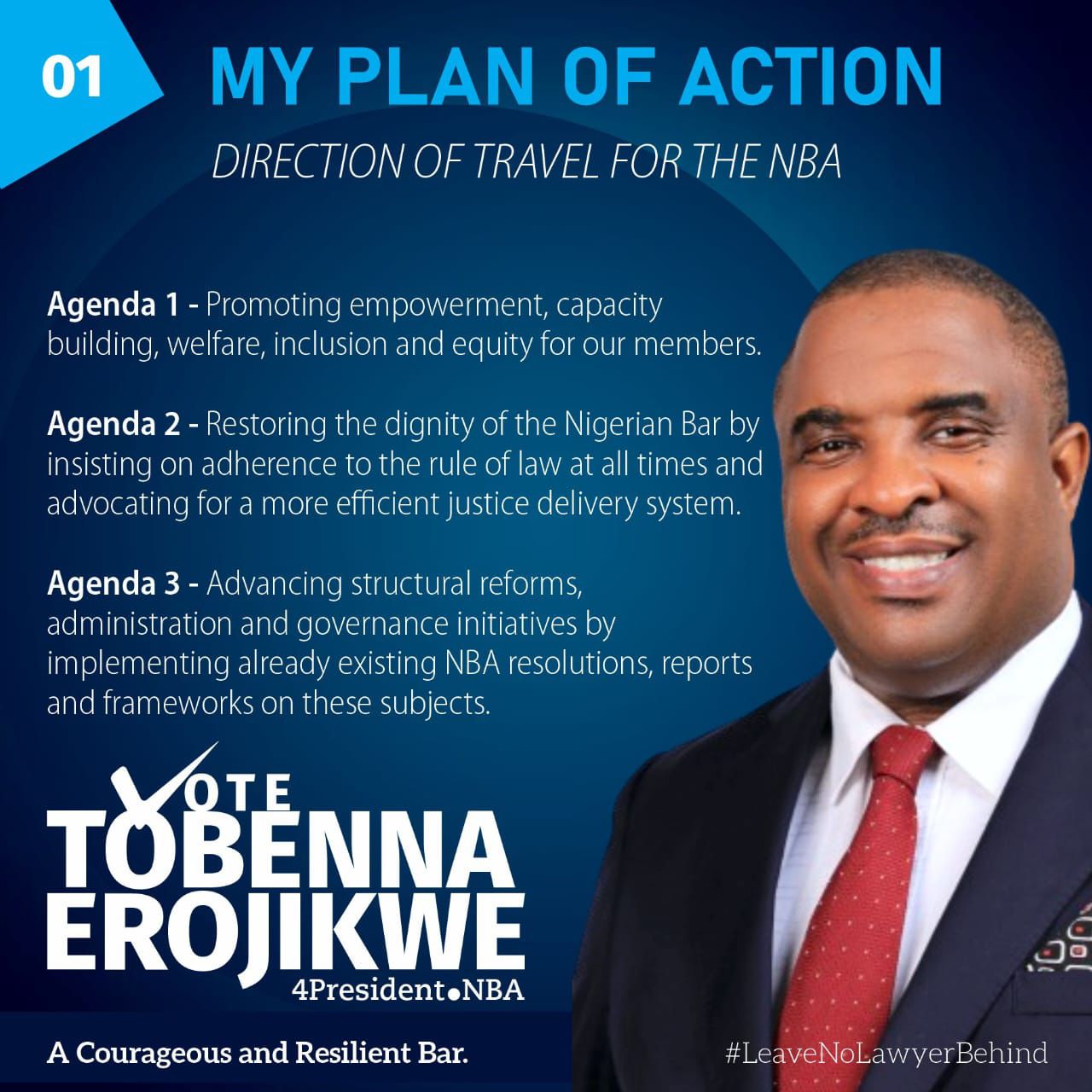According to World Bank estimates, the interest in the Atlantic Ocean is constantly growing, driven by the desire to exploit its opportunities and capitalize on shared benefits to address global challenges.
Oceans play a crucial role in the global economy, contributing $1.5 trillion each year, a figure that is expected to double by 2030 to over $3 trillion. This projected expansion is also expected to create nearly 50 million jobs in the sustainable maritime economy sector in Africa, while contributing approximately $21 billion to Latin America’s gross domestic product.
King Mohammed VI’s vision for the Atlantic :
King Mohammed VI’s vision for the Atlantic, in collaboration with international and regional partners, represents a bold and innovative approach for the Afro-Atlantic region. This vision seeks to harness the human and natural resources of the area through a collective initiative aimed at bolstering development catalysts, enhancing maritime transportation infrastructure, and promoting investment in energy and maritime economy-related value chains.
Morocco’s Contribution to the Atlantic Initiative: Morocco, intrinsically tied to the Atlantic through its geopolitical identity, assumes a pivotal role in advancing an African viewpoint centered on the Atlantic coast, thereby enhancing dialogue and solidifying enduring relationships. As Africa’s foremost trade ally for numerous principal nations within the Euro-Atlantic area and the leading African investor in West Africa, Morocco sustains robust ties with African nations along this strategic front. Demonstrating Morocco’s enduring dedication to these partnerships, King Mohammed VI has undertaken 38 visits to 15 countries across the Afro-Atlantic region since 1999.
The Emergence of the Integration Initiative on the Atlantic Facade of Africa:
The emergence of the integration initiative on the Atlantic facade of Africa reflects the commitment of many regional actors to building a common and open platform for collaboration, dialogue, and exchange. The objective is to strengthen the competitive capacities of the 23 countries involved in order to effectively respond to the challenges of the current international arena. This initiative aims to make the African Atlantic coast a vector of security solutions, economic opportunities, and investment, within the framework of what is known as the ocean economy. The Atlantic offers a favorable environment for establishing significant links with other Atlantic regions, including the United States, Western Europe, Latin America, and the Caribbean. This dynamic is partly explained by the fact that the Atlantic Ocean is today considered one of the most stable and busiest in terms of maritime trade, compared to the Pacific and Indian Oceans.
The Advantages of Policy Integration and Harmonization:
Efforts aimed at integrating and harmonizing policies provide countries with enhanced competitive conditions, thereby bolstering opportunities for diversifying partnerships and expanding economic prospects. Additionally, they play a role in safeguarding shared interests against fluctuations in international markets and geopolitical shifts.
The Added Value of an Afro-Atlantic Cooperation Initiative:
Although some countries on the African Atlantic coast have significant individual resources, an Afro-Atlantic cooperation initiative could add value to the intrinsic strength of each country. This initiative is not limited to a traditional approach to integration, but adopts an enlightened vision of geopolitics that is both African and Atlantic, encompassing countries from four geopolitical regions of the continent: north, west, center, and south. Its objective is to extend the Atlantic cooperation model by launching projects aimed at bringing about a fundamental transformation throughout this space. It is in this context that the Morocco-Nigeria gas pipeline project fits in, which encompasses 13 African countries bordering the Atlantic and totaling 440 million inhabitants. With an ambitious infrastructure exceeding 5,660 km of gas pipeline towards Western Europe, this project could become a key element of shared prosperity in the Atlantic, while symbolizing the meeting between two continents and paving the way for development and energy.
The Four Strategic Priorities of the Afro-Atlantic Initiative:
I. Create an Afro-Atlantic space that strengthens stability and peace through security solutions.
II. Establish an Afro-Atlantic space with a competitive advantage in value chains.
III. Promote a sustainable Afro-Atlantic space by fostering social, environmental, and economic development, particularly in the areas of the green and digital economy, as well as in addressing the challenges of food, water, and energy security.
IV. Develop an Afro-Atlantic space that values its potential as an attractive pole facing the global South.
Thus, it is certain that international actors outside the African continent will be attentive to the opportunities presented by the Atlantic initiative and its contribution to the overall vision for the region’s development. This international cooperation project spans over 11,000 km, from Tangier to Cape Town via Lagos. A notable example of this international interest is the American initiative that has placed the Atlantic at the heart of deliberations, involving 32 coastal countries (which are now 38) from four continents. This initiative was launched in September 2023 during a statement on Atlantic cooperation on the sidelines of the United Nations General Assembly in New York, with the participation of 15 African Atlantic coastal countries at this meeting.
Regarding the expected economic and geopolitical benefits of the Afro-Atlantic initiative, four key benefits can be highlighted:
I. Enhance collaboration across the Atlantic coastline of Africa, positively influencing the domestic economies of the participating nations. Six of Africa’s largest economies are situated along the Atlantic, accounting for 55% of the continent’s overall GDP and producing 57% of the trade within Africa, in addition to attracting 60% of the foreign direct investment. This concentration of economic activity generates heightened global attention towards this area.
II. Increase the bargaining power of the Atlantic coastal countries with international powers, cooperation institutions, and regional forums to secure financial support for regional projects and defend regional interests in a realistic and pragmatic manner.
III. Highlight the strategic importance of the Atlantic in Africa for the development of value chains specific to this area and stimulate increased interest in addressing gaps in infrastructure and investment.
IV. Create an open and innovative platform to strengthen South-South cooperation and achieve a fundamental transformation across the Atlantic space, by promoting convergence between four continents (Africa, Europe, North and South America). The goal is to make the Atlantic a space of partnership for progress and peace, to accompany dynamic developments, especially since 46% of the African population lives in Atlantic coastal countries, largely young people who constitute a driving force in the labor market and a significant base for consumption.
The Kingdom of Morocco plays a central role in the Afro-Atlantic initiative, acting as a cornerstone and driving force for its proactive approach. This is demonstrated by its leadership in several key areas: hosting the General Secretariat of the initiative in Rabat, serving as the central coordinating body. Spearheading ministerial meetings, including those held during the 78th United Nations General Assembly in New York and the latest meeting in Rabat in July 2023.
Furthermore, Nigeria, Cape Verde, and Gabon have been entrusted with developing comprehensive action plans addressing critical areas such as: security and political cooperation ; combating terrorism and transnational crime ; Mitigating maritime piracy and illegal immigration ; Promoting the blue economy and maritime connectivity ; addressing energy needs, sustainable development, and marine environment protection.
The Afro-Atlantic initiative stands as the most significant and ambitious strategic vision for Africa to date. To ensure its success, three key elements are crucial: Implementation of concrete cooperation projects that deliver tangible benefits to participating nations ; Strengthening tripartite partnerships by collaborating with interested international actors who can contribute expertise and resources ; Establishing long-term objectives that guide the initiative towards achieving economic integration, political convergence, and enhanced competitiveness for the region.
Ultimately, the Afro-Atlantic initiative emphasises the enduring principle: unity is strength. By working together, the participating nations can harness their collective potential to shape a more prosperous and secure future for Africa.
Pr. Mohamed Bouden: expert in contemporary international affairs
Gatekeepers News is not liable for opinions expressed in this article, they’re strictly the writer’s







